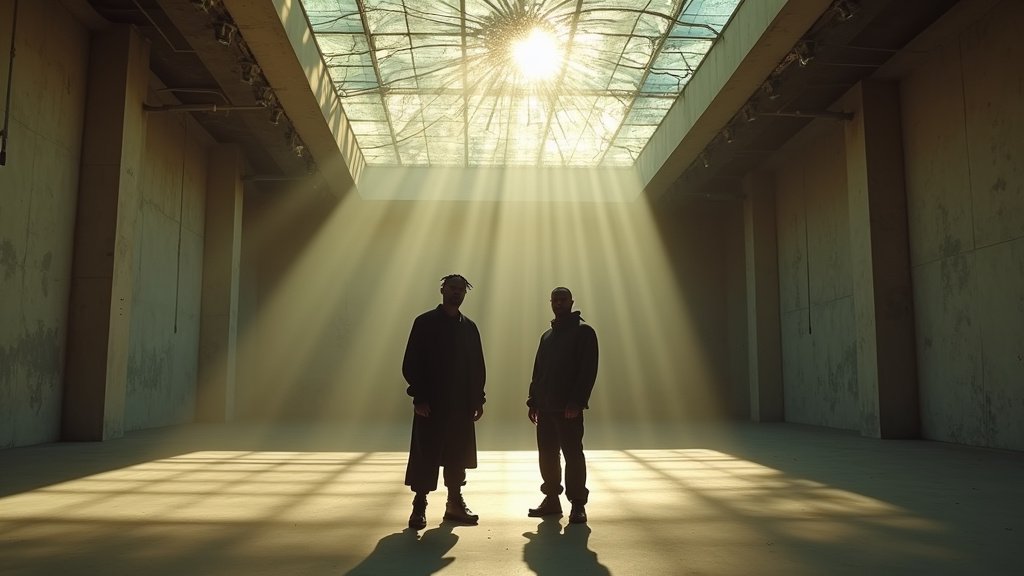It’s 2024, and just when we thought the Terminator franchise had delivered its last jaded cyborg, Netflix’s Terminator Zero comes roaring back onto our screens—this time, in anime form. Set in Japan and blending the best elements of post-apocalyptic thrillers with Japan’s cultural fascination with artificial intelligence, Terminator Zero gives the aging franchise a much-needed reboot. Directed by Masashi Kudō (Bleach) and penned by Mattson Tomlin (Project Power), the eight-episode series does its best to reclaim the gritty, fear-driven roots of the original films. Does it succeed? Well, that depends on how much faith you have left in Skynet and killer robots.
While the Terminator series has been through more retcons than a comic book superhero, Terminator Zero manages to strike a balance between fan service and fresh storytelling. But it’s not without its flaws—let’s dive in.
Bringing the Terminator to Anime: A Risk Worth Taking?
The idea of a Terminator anime sounds like a niche spin-off for the die-hard fans, but Terminator Zero proves that this risk can pay off. For one, the anime medium offers a platform for more intense action sequences, brutal violence, and larger-than-life sci-fi ideas that sometimes strain live-action budgets. Visually, Terminator Zero is striking, with beautifully rendered apocalyptic landscapes, slick animation, and detailed character designs that pop against the drab, dystopian backdrop. The action is bloody and relentless—classic Terminator—but without the financial limitations of special effects, the anime format allows the T-800’s metal carnage to flow without restraint.
But while the animation is top-notch, Terminator Zero runs the risk of alienating purist fans who might find the shift from live-action to anime jarring. Yet for others, this could be a breath of fresh air after years of diminishing returns from the Hollywood live-action sequels. It’s like seeing the franchise rebooted with an entirely new coat of paint, one that highlights Japan’s long-standing relationship with AI and its philosophical musings on humanity’s future.
Plot and Storyline: The Same Old Terminator, With a Twist
The story follows a familiar Terminator structure—humans battling to stop the AI apocalypse before it can start. In Terminator Zero, Resistance warrior Eiko (Sonoya Mizuno) is sent back from 2022 to 1997 Japan to protect Malcolm Lee (André Holland), a scientist with a game-changing AI system called Kokoro (voiced by Rosario Dawson). Unlike Skynet, Kokoro isn’t bent on humanity’s destruction—yet. But with the looming presence of a T-800 (Timothy Olyphant) dispatched to kill Lee, the future is once again hanging in the balance.
While Terminator Zero delivers the expected time-travel, fight-for-the-future plot, it layers in a deeper philosophical debate. Instead of just avoiding Judgment Day, Malcolm and Kokoro have drawn-out discussions about the ethics of AI, the role of technology, and whether humanity deserves to be saved. If this sounds like a lot for an anime, well, it is. At times, the philosophical tangents can bog down the pacing, leaving viewers yearning for more explosive action rather than introspective dialogue about machine consciousness.
However, these conversations elevate Terminator Zero beyond being a mindless shoot-’em-up, giving the series an edge of intellectual intrigue that hasn’t been this apparent since Terminator 2: Judgment Day asked if humanity could ever escape its violent tendencies. It’s also refreshing to see an emphasis on collaboration between humans and AI—a significant departure from the typical “kill or be killed” attitude of previous installments. Whether or not that message lands with a cynical audience remains to be seen.
Character Performances: Old Archetypes with New Faces
Eiko, the anime’s protagonist, is another in a long line of tough, no-nonsense fighters in the vein of Sarah Connor. Voiced by Sonoya Mizuno (Ex Machina), she brings a steely resolve to the role, though her character development can feel a little flat. Much like other time-traveling protectors before her, she’s defined more by her mission than by her personality.
Malcolm Lee, on the other hand, offers more complexity. Voiced by André Holland, his character is a thoughtful inventor caught between the potential of his technology and the fear of what it could unleash. His relationship with Kokoro becomes the emotional center of the series, with Dawson’s soft but authoritative voice lending an ethereal quality to the AI. Kokoro herself becomes a more compelling character than expected, grappling with questions of sentience and purpose, much like a Japanese version of HAL 9000—minus the homicidal tendencies.
And then there’s Timothy Olyphant as the menacing T-800. While he’s not physically present (the Terminator is a robot, after all), his voicework manages to capture the cold, calculated menace that made the original T-800 so iconic. His portrayal reminds viewers of the franchise’s horror roots, bringing back that sense of relentless dread as he hunts down his human targets.
Action and Atmosphere: A Return to Horror
For all its philosophical musings, Terminator Zero never forgets its horror roots. The series masterfully recaptures the terror of being stalked by an unstoppable killing machine. The T-800’s design—complete with glowing red eyes, exposed metal, and a terrifyingly cold demeanor—makes every encounter feel like a nightmare. The cat-and-mouse chases, violent shootouts, and gnarly kills are more than enough to keep viewers on the edge of their seats.
But what makes the action stand out is how the anime fully embraces its medium. There’s an intensity and fluidity to the battles that live-action films just can’t match. We see car chases through neon-lit Tokyo streets, full-scale shootouts in abandoned factories, and an army of terminators crushing human skulls with a visual flair that borders on beautiful, in a horrific kind of way.
Still, there are moments when the pacing falters. At times, the series gets bogged down in exposition or the aforementioned philosophical debates, slowing the momentum. However, for those who love a slow build to the action, the quieter moments of character introspection can add depth to the otherwise action-heavy series.
Cultural Context: A Japanese Take on an American Icon
One of the more intriguing aspects of Terminator Zero is its Japanese setting. By transplanting the familiar Terminator narrative into Japan, the series gains a fresh cultural perspective. Japan’s complex relationship with technology, particularly with AI and robotics, adds an extra layer of meaning to the story. It’s not just about stopping Skynet from launching a nuclear apocalypse—it’s about exploring what it means to be human in an increasingly automated world.
This shift in perspective also brings a unique visual style. The animation is sleek and stylized, with a cyberpunk aesthetic that’s clearly influenced by Japanese classics like Ghost in the Shell. The use of Japanese locations, from bustling Tokyo to rural backwaters, provides a vibrant backdrop for the action and gives Terminator Zero a distinct look that sets it apart from its predecessors.
Conclusion: Is Terminator Zero Worth Watching?
If you’re a fan of the Terminator franchise, Terminator Zero is a must-watch. It takes the familiar elements of the series—time travel, AI-run amok, and unstoppable killing machines—and presents them in a fresh, anime-inspired package. While it stumbles at times with its pacing and overly philosophical dialogues, the strong action sequences and visually striking animation make up for these shortcomings.
For newcomers, the series offers enough standalone thrills to keep you entertained, even if you aren’t familiar with every detail of the franchise’s convoluted timeline. Ultimately, Terminator Zero is a bold experiment in reviving a classic series, one that just might ensure that the Terminator will, indeed, be back.
FAQs
What is Terminator Zero about?
Terminator Zero is an anime adaptation of the Terminator franchise. It follows a soldier from the future, Eiko, who is sent back to protect a scientist in 1997 Japan from a T-800 terminator.
How does Terminator Zero connect to the rest of the franchise?
The series builds on themes from the previous films, especially Terminator 2: Judgment Day, but adds new elements like philosophical debates about AI and a Japanese cultural setting.
Who are the main characters?
The main characters include Eiko, a future soldier; Malcolm Lee, a scientist; Kokoro, an advanced AI; and a menacing T-800 terminator.
Is Terminator Zero suitable for new viewers?
Yes, while the series references past events from the Terminator films, it works well as a standalone story.
How many episodes does Terminator Zero have?
The series consists of eight episodes, each roughly 25 minutes long.
Will there be a season 2?
As of now, there’s no official announcement, but the series leaves room for potential continuation.




